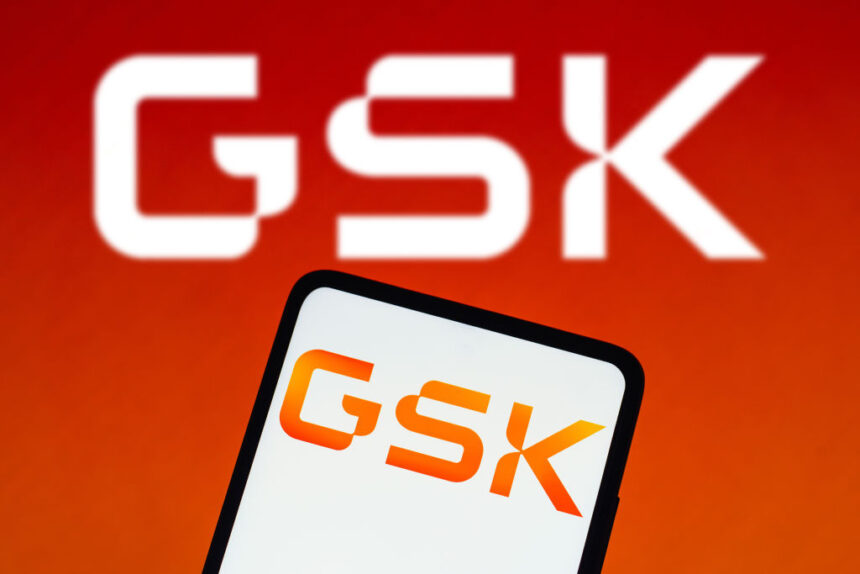It’s been an upbeat week for GSK as it reported a trio of positive updates stemming from vaccines and oncology products.
Most notable, perhaps, was the news that the British drugmaker took a step closer toward expanding the market for its already successful RSV shot Arexvy. The shot, approved by the Food and Drug Administration last May for use in people 60 and above, could earn a greenlight for those ages 50 to 59 who are at increased risk.
GSK used a priority review voucher to shorten the time to review its marketing application by four months and the FDA agreed to render a decision by June 7. A similar regulatory review for Arexvy is underway in Europe, with an action date by the European Medicines Agency (EMA) expected in the second half of the year.
The vaccine generated global sales of around £1.2 billion ($1.5 billion) during its first year on the market, handily beating GSK’s own forecast. That debut is considered all the more impressive given competition from rival drugmaker Pfizer, which saw slower sales of its own RSV shot, Abrysvo, despite launching around the same time as Arexvy.
Physicians don’t see much of a difference in safety and efficacy between the two. “[T]hus, performance will be based on price and marketing,” according to analyst firm GlobalData, which interviewed KOLs about the dueling RSV shots.
Based in part on its unexpectedly high returns for the RSV jab so far, GSK upped its total company sales forecast to £38 billion by 2031, from the previous projection of £33 billion. The Arexvy label expansion, if accepted, could help it achieve that lofty goal by bolstering its position against Abrysvo which, unlike Arexvy, is also approved as a maternal vaccine.
“The potential label expansion that will enable Arexvy to be administered to a wider adult population will therefore be important for providing a further differentiating factor against Abrysvo,” added Anaelle Tannen, an infectious disease analyst at GlobalData.
Abrysvo generated $515 million in global revenues, but the company is reportedly doubling down on the less-than-stellar launch. Meanwhile, Moderna is hoping to bring its own RSV jab to market this year, as well.
In another encouraging vaccine development — and one which further feeds GSK’s ambitious forecast — the company said Chinese health authorities accepted its application to expand the eligible population for shingles shot Shingrix.
Already approved in China for adults aged 50 years and over, the application would widen the approval to include all adults 18 and over with an increased risk of the disease. GSK says there are about six million cases of shingles in the country each year.
Rounding off the week’s good news, a readout from the Phase 3 DREAMM-7 study may have paved the way for the return of GSK’s Blenrep (belantamab mafodotin), a blood cancer drug which was withdrawn from the U.S. market more than a year ago.
Data from the combination study, which was unblinded in the fall, showed that Blenrep nearly tripled median progression-free survival (PFS) versus a cocktail that included Genmab and Johnson & Johnson’s Darzalex (daratumumab) in second-line and later treatment of relapsed or refractory multiple myeloma (RRMM).
Both drugs were paired with BorDex — a cocktail made up of Takeda’s Velcade (bortezomib) along with dexamethasone.
Researchers observed a 36.6 month median PFS for the Blenrep combo versus 13.4 months in the Darzalex combo arm. Safety and tolerability of the combo was consistent with the known profile of the individual agents.
The study met the primary endpoint of PFS, with the Blenrep cocktail showing a statistically significant and clinically meaningful 59% reduction in the risk of disease progression or death versus the Darzalex combo. The trial hit on all its secondary efficacy endpoints too, and findings are being presented at this week’s American Society of Clinical Oncology plenary series.
Given the data, Hesham Abdullah, SVP and global head of oncology R&D at GSK, said the company plans on sharing the results with health authorities worldwide.
All eyes will be on the reaction. The drugmaker recalled Blenrep, a BCMA-directed antibody drug conjugate (ADC), from the U.S. in late 2022 after the DREAMM-3 study had failed to show a necessary confirmation of its benefits as a standalone agent.
That led to DREAM-7 and a host of other test-pairings. Data from another such study, DREAMM-8, are expected in the second half of 2024. That one is testing Blenrep with BMS drug Pomalyst (pomalidomide) and dexamethasone versus Velcade in combination with Pomalyst and dexamethasone in RRMM.
Like many of its Big Pharma peers, GSK has also stayed busy on the M&A front. Its most recent acquisition was Aiolos Bio, which fetched $1 billion upfront and $400 million in potential milestones. Aiolos’ asthma candidate AIO-001 helps GSK expand its respiratory pipeline.







